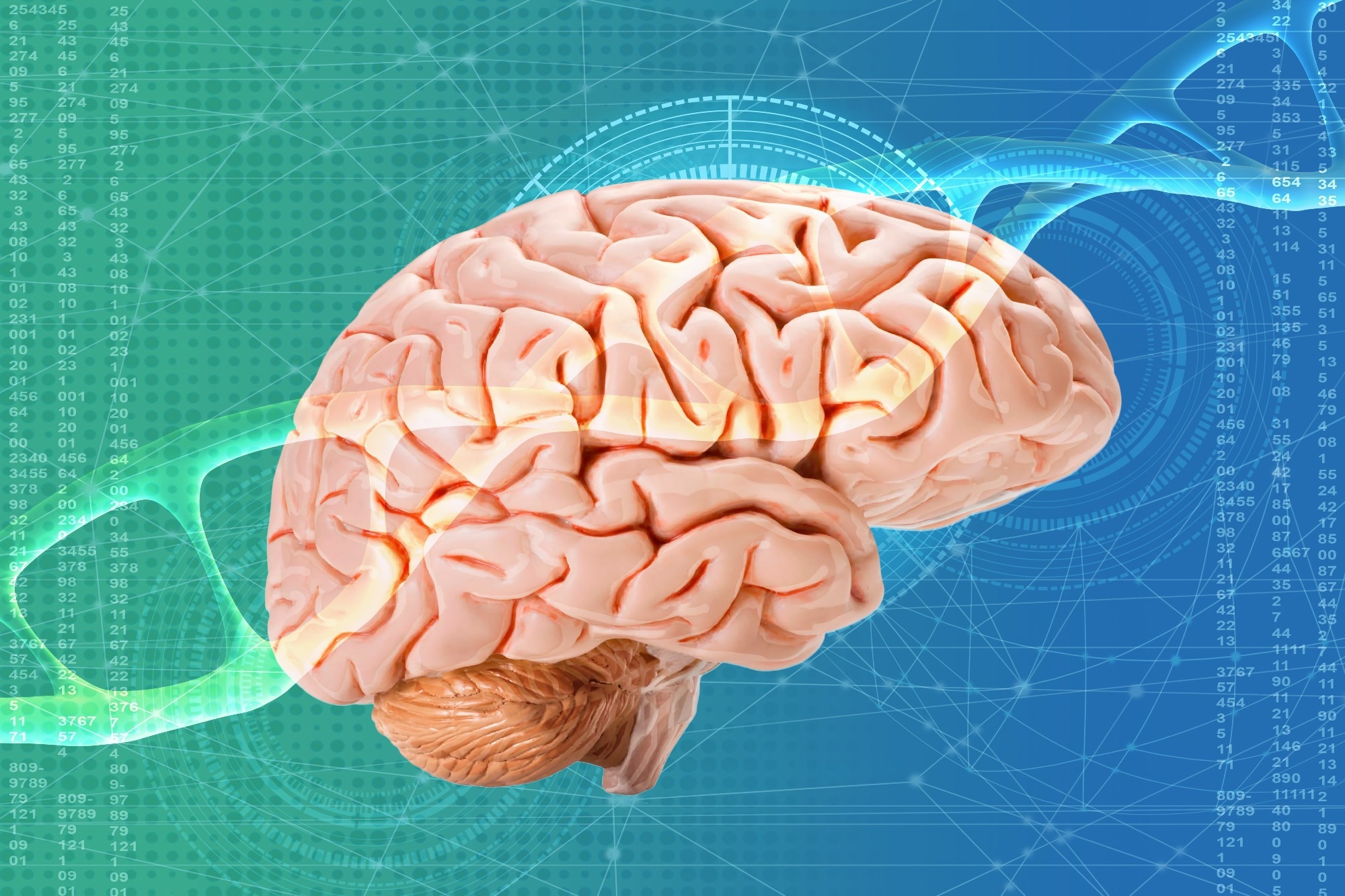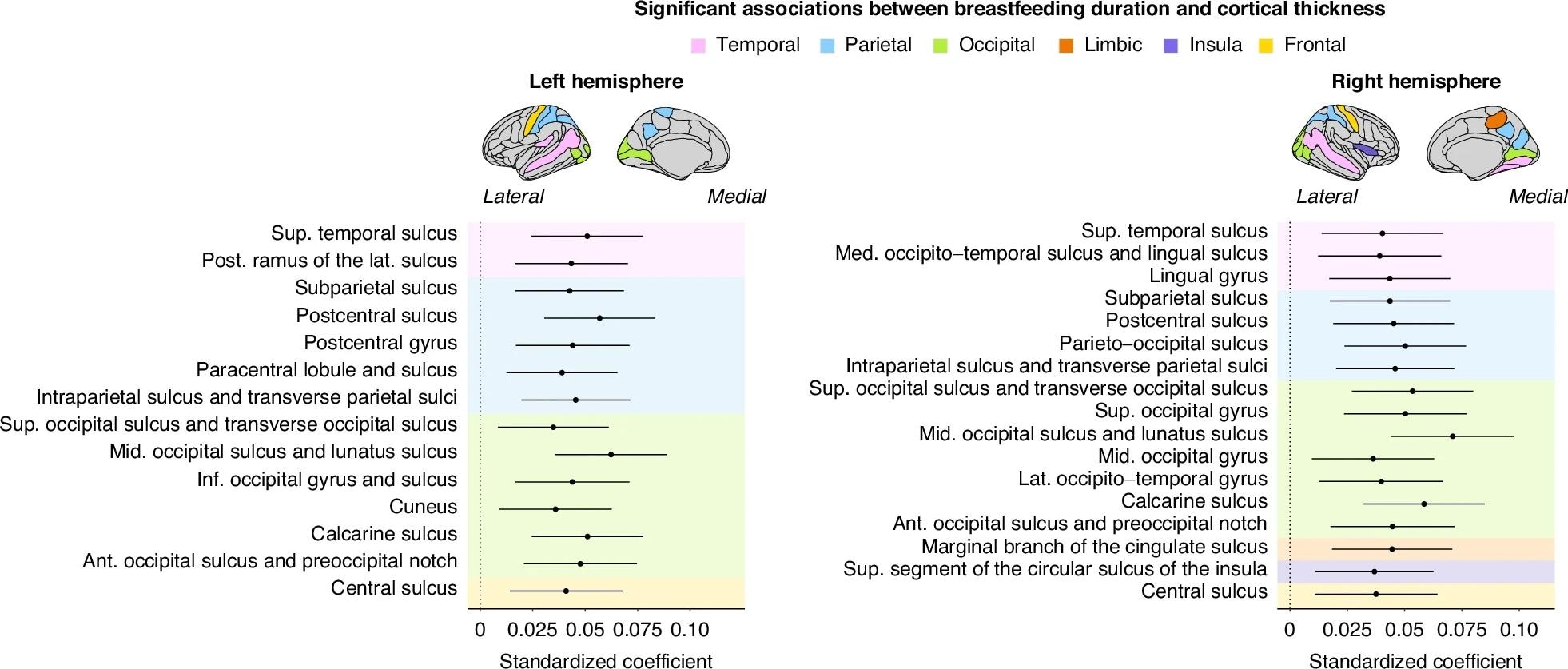New research reveals that extended breastfeeding benefits infants and helps adolescents build stronger brains and sharper thinking, highlighting the long-term value of following global breastfeeding recommendations.
 Study: Sustained breastfeeding associations with brain structure and cognition from late childhood to early adolescence. Image Credit: Kittyfly / Shutterstock
Study: Sustained breastfeeding associations with brain structure and cognition from late childhood to early adolescence. Image Credit: Kittyfly / Shutterstock
Breastfeeding's neurocognitive benefits on infants and children are generally supported, although some inconsistencies remain in the scientific literature. However, its impacts on later-stage neurocognitive development remain poorly understood. In a recent study published in the journal Pediatric Research, researchers conducted a longitudinal association study to investigate the relationship between breastfeeding (duration) and adolescent neurocognitive outcomes.
The study leveraged the Adolescent Brain Cognitive Development (ABCD) Study cohort (n = 5,098, 49% female, age = 9-10 yrs) and found that longer breastfeeding durations were associated with increased cortical thickness, fluid cognition, and surface area, while also positively impacting cortical myelin. The observed effects were statistically significant but modest in size. These findings highlight breastfeeding's long-term neurocognitive benefits, particularly during adolescence, a time of substantial brain remodeling.
Background
'Neurodevelopment' is an umbrella term encompassing the formation, growth, and periodic remodelling of the brain and nervous system across an individual's lifetime. Decades of research have revealed the importance of sufficient and optimal nutrition in paving the way for ideal neurodevelopment, with early life years (infancy and childhood) found especially critical for long-term neurocognitive well-being.
Human breast milk has been studied extensively and has been found to contain the full spectrum of essential nutrients required for optimal neurodevelopment during early life. Consequently, most scientists and paediatricians recommend a minimum of six months, and an optimal of two years of breastfeeding before weaning is carried out. Current global health guidelines specifically recommend exclusive breastfeeding for the first six months of life, with continued breastfeeding alongside complementary foods for up to two years or beyond. While breastfeeding's benefits on infant neurodevelopment have been well established, breast milk's long-term benefits across other life stages (particularly adolescence) remain understudied.
Unfortunately, in today's increasingly fast-paced world, parents' dependence on formula milk is rising at a concerning rate. Unlike breast milk, formula milk has been associated in some studies with less favorable neurocognitive outcomes, although causality has not been definitively established and formula provides many essential nutrients. Evidence regarding the direct effects of formula on neurodevelopment is not definitive and may be influenced by other factors such as socioeconomic status and parental education.
Understanding the impacts of breastfeeding during later life stages (e.g., during adolescence, a period of aggressive neural remodeling) would help further substantiate breast milk's benefits over its primary alternative (formula milk), potentially improving long-term neurocognitive outcomes in future generations.
About the study
The present longitudinal study aims to unravel the impacts of breastfeeding (especially duration) on adolescent neurological features (cortical thickness, myelin, and surface area) and proxies of executive function (fluid cognition). The study used data from the Adolescent Brain Cognitive Development (ABCD) Study (release 5.1), a long-term (10 years) investigation of brain development and child health in the United States (US).
Study data included participant demographics and physical characteristics (race/ethnicity, sex, household education, perinatal complications, etc.), caregiver-reported breastfeeding duration (retrospective), and magnetic resonance imaging (MRI)-derived neurodevelopmental data (cortical thickness and surface area; 148 brain regions imaged).
Fluid cognition (the ability to process and solve problems in novel situations without prior knowledge) was evaluated using the National Institutes of Health Toolbox Cognitive Battery (NIH Toolbox). All experimental procedures and health records were collected twice: at study initiation ('baseline') and at the end (2 years' follow-up').
Statistical analyses leveraged univariate linear mixed-effects models (LME) to evaluate whether breastfeeding duration influenced the relationship between age and neurocognitive features, accounting for demographic variables (e.g., sex, household education) and medical variables (e.g., preterm birth).
Breastfeeding duration was categorized as never breastfed, 1–6 months, 7–12 months, and more than 12 months, based on caregiver retrospective reporting, which may be subject to recall bias. The study was observational and cannot establish causality.
Study findings
The final study sample cohort comprised 5,098 participants (mean age = 9.92 yrs, 48.9% female), 3,810 of whom were reassessed after 2 years. COVID-19 restrictions prevented the reassessment of the remaining 1,284 participants. Non-Hispanic/non-Latino demonstrated the highest representation (78.4%), followed by White participants (67.9%). Most participants were breastfed for between 1 and 6 months (34.6%) and were right-handed (80%).
 These models were adjusted for prematurity, education, and sex. Only regions that survived the Benjamini–Hochberg correction are shown. The left panel refers to regions within the left hemisphere. The right panel shows the regions in the right hemisphere. Ant anterior, Post posterior, Sup superior, Inf inferior, Lat lateral, Mid middle, Med Medial, Hor Horizontal.
These models were adjusted for prematurity, education, and sex. Only regions that survived the Benjamini–Hochberg correction are shown. The left panel refers to regions within the left hemisphere. The right panel shows the regions in the right hemisphere. Ant anterior, Post posterior, Sup superior, Inf inferior, Lat lateral, Mid middle, Med Medial, Hor Horizontal.
Breastfeeding duration analyses revealed that longer breastfeeding periods were associated with increased cortical thickness and surface area across 31 and 45 regions, respectively (out of 148). Cortical structure is hypothesized to protect against age-related cognitive decline, and the extent of surface area increase was observed to mediate associations between breastfeeding duration and fluid cognition, highlighting the importance and interplay between these variables.
Fluid cognition was found to benefit from breastfeeding in a dose-dependent manner. Notably, while baseline cortical myelin measures revealed that breastfeeding affected four regions, follow-up measures extended these impacts to 12, suggesting that some breastfeeding components may endure long-term and be critical for brain remodelling during adolescence. However, the effects on cortical myelin were more limited and primarily observed in specific brain regions.
No significant interaction was found between breastfeeding duration and rate of change in cortical features or cognition over the two-year follow-up; the associations were stable rather than increasing with age.
Conclusions
The present study establishes the long-term benefits of extended breastfeeding durations, revealing that they endure beyond early life and potentially critically mediate adolescent-stage brain remodelling. Increased breastfeeding durations were found to benefit cortical thickness and surface area, which are known to protect against age-associated neurocognitive decline and psychiatric disorders. Cortical myelin and fluid cognition also presented dose-dependent associations with breastfeeding, highlighting the latter's role in efficient neural communication and holistic cognitive capacity.
Importantly, these findings reinforce and align with existing public health recommendations supporting exclusive breastfeeding for the first six months and continued breastfeeding up to two years or longer, as optimal for child neurodevelopment. However, they should be interpreted with caution given the modest effect sizes, the observational nature of the study, and limitations such as recall bias and potential lack of generalizability to all populations. Further research is needed to identify specific breast milk components with potential pharmacological and therapeutic purposes, and to examine these associations in more diverse cohorts and over longer developmental periods.
Journal reference:
- González, J.O., Fernández, M.A.R., Esaian, S. et al. Sustained breastfeeding associations with brain structure and cognition from late childhood to early adolescence. Pediatr Res (2025), DOI – 10.1038/s41390-025-04086-x, https://www.nature.com/articles/s41390-025-04086-x